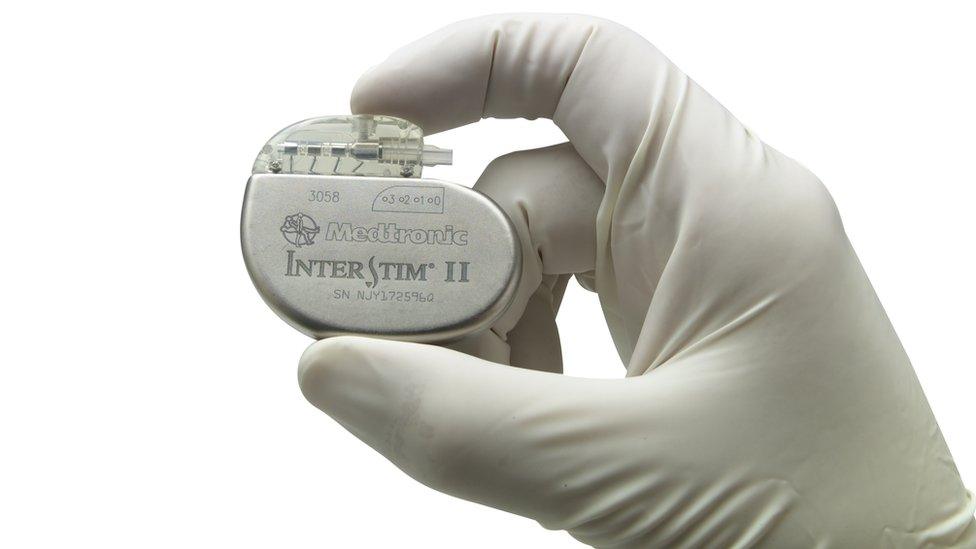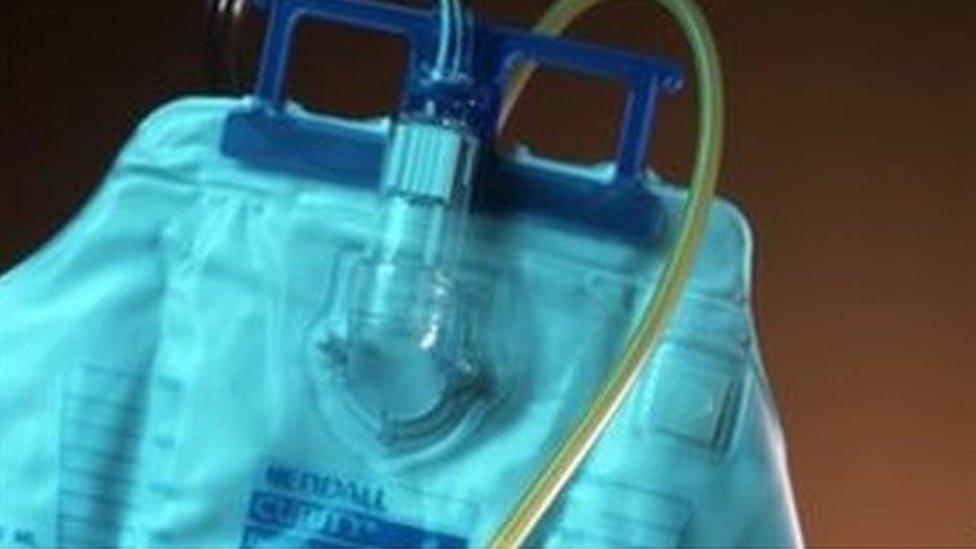Implant call for Welsh patients with bowel condition
- Published

Calls have been made for people with a debilitating bowel condition to be funded for a £7,500 implant.
About 1,000 patients a year in England and Scotland who have faecal incontinence are fitted with the nerve-stimulating device, but in Wales about 40 have received it since 2009.
Labour AM Jenny Rathbone said it should be a "standard intervention".
The Welsh Government said it expected health boards to have "routine arrangements" for appropriate care.
Medics say at least 2.5% of the population suffer from the condition, which causes people to lose control of their bowel movements.
Those most at risk include post-menopausal woman and mothers who have had traumatic births, as well as some cancer survivors.
The condition can lead to people becoming housebound and socially isolated.
For many patients, changes to their diet and physiotherapy can help to manage the symptoms - but people who do not respond to these treatments can go on to be fitted with a sacral nerve stimulation (SNS) device.

The SNS device sends electrical signals to the nerves which control bowel movements
The device, a pacemaker fitted at the base of the spine, sends electrical signals to the nerves which control bowel movements.
With added costs of monitoring and battery changing, the lifetime cost of the device can add up to £25,000.
SNS has been approved by the National Institute for Health and Care Excellence (Nice) as a treatment once all others have been tried and failed.
Currently, medics in Wales have to apply for funding for SNS through Individual Patient Request Forms (IPFRs), a process usually reserved for treatments that have not been Nice approved.
A Freedom of Information request by BBC Radio Wales' Eye On Wales programme revealed about 40 patients in Wales have been fitted with SNS devices in the last seven years.
'Second-rate service'
Ms Rathbone, who unsuccessfully tried to get the device funded for one of her Cardiff Central constituents, said: "When a doctor thinks this is needed, it should be made available.
"I believe that, because this is primarily a women's issue, it is not given the attention and funding it deserves."
Colorectal surgeon Julie Cornish, at the Royal Glamorgan Hospital in Llantrisant, Rhondda Cynon Taff, said patients in Wales were "essentially getting a second-rate service".
She said: "SNS should be a core treatment. If you look at the cost of a permanent colostomy or ileostomy that can be in the region of £33,000.
"This is commissioned in England and is a treatment that is offered to English patients. It's embarrassing we don't have it in Wales."
In response, the Welsh Government said: "Local health boards are not using the IPFR process to approve this treatment. They are using the IPFR panels for a separate purpose, to ensure referrals for this form of treatment are meeting Nice guidelines.
"If health boards do not have such specialised facilities we would expect them to have routine arrangements in place for patients to receive the care elsewhere."
Eye on Wales' Sacral Nerve Stimulation will appear on BBC Radio Wales on Sunday at 12:30 BST.
- Published28 December 2015

- Published15 December 2014

- Published24 June 2010